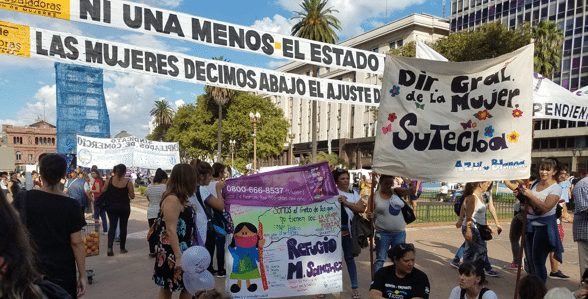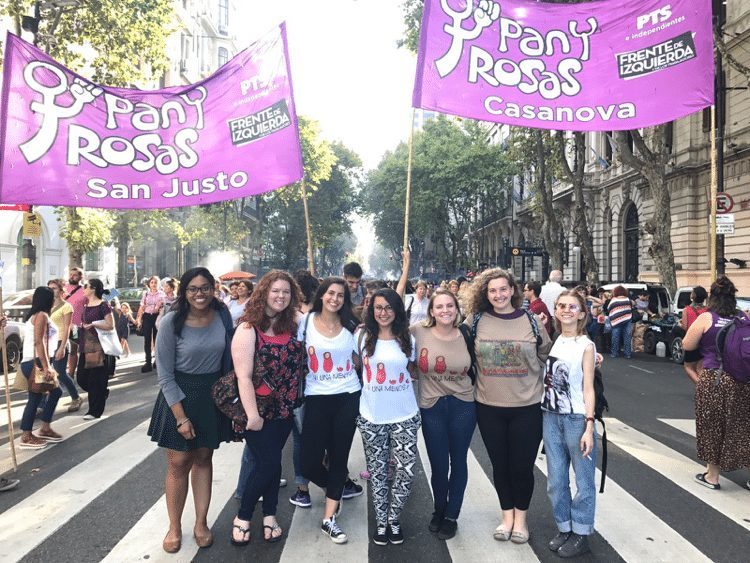March 8 is an important date for gender equality worldwide, but the relevance strikes one harder in Argentina, where femicide has been a national issue. As that history geek who fangirled over every inch of Plaza de Mayo in Buenos Aires when I first arrived, you may imagine my excitement for the protest on Wednesday, March 8. To be part of nation’s living history is a unique blessing. To be part of a social justice movement that is celebrated globally was too special for even myself to comprehend.
Arrival to the scene of Plaza de Mayo today was more like joining a cookout party rather than an angry protest.
Red pro-choice banners soar in front of the Casa Rosada, while a little girl escapes her father’s sight to go watch an elderly woman popping a small white balloon. Confetti bursts out of it, and a man with glazed-over eyes shoves his way past the scene, his monotone voice shouting that he has beer for sale. His apparent detachment from the festivities does not faze a forty something woman from dancing passionately to “Antipatriarca.”
Beyond the plaza, marchers from earlier in the day line the streets with band performances and feminist chants. One part of the march includes a woman stripping completely and miming to the crowd to ignore her. A girl with a blue shirt stating “libertad” (freedom) claps her hands, and the proud feminist mob joins.
“Just another Wednesday, taking down the patriarchy,” one of the girls from my program comments.
It is one thing to be a proud feminist in the United States, where sexism exists in discreet social patterns, but where the promotion of equality is widely accepted. It is another thing to witness the passion of feminists from another state, where the daily murder of women is an explicit issue.
According to a 2016 study by NGO La Casa del Encuentro, an Argentinian woman is killed by a violent partner (intimate femicide) every 30 hours. It is difficult to compare this with the United States, not only because of the difference in populations but because of the way homicide is analyzed.

Regardless, it is clear our countries experience the meaning of feminism in different contexts. In my experience, a discussion of feminism in the context of the U.S. is usually centered around legal boundaries, like abortion rights or equal pay. In contrast, in articles from Argentina and in the few talks I have been able to have with teachers and students here, femicide seems to be the first topic of feminism. On the other hand, although the U.S. may prioritize legal issues and Argentina social issues, both nations witness gender inequality in both contexts.
Being in Argentina, a country where the issue has sparked explicit debate and even presidential action, has also made me reflect on my own culture’s approach to domestic violence. Today has left me wishing the United States would bring more awareness to its underground, more heinous acts against women.
This post was contributed by Carolyn Conte, who is spending her study abroad experience this spring semester with AIFS in Buenos Aires, Argentina.
